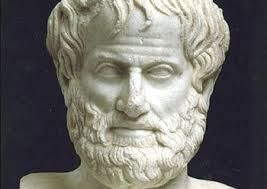Existing ethical theories may develop and new theories may emerge
As the social, economic, industrial and engineering setups and standards keep on changing – so are the Ethical Expectations and Theories
Moral Reasoning and Theories are mostly culturally based:
Most of the Ethical Theories are based on the setups of western world
Westerns focus on the Moral Values and Behaviour of individuals rather than those of a group
Globalization and Internationalization are causing / pressurizing the changes
In keeping the balance between “business – government” and “individuals – society”, international frame-work weakens and vice-versa i.e. between “business – government” and “international organizations – governments”
Different international norms may emerge
Moral Values and Moral Issues:
Understanding moral values
Resolving moral issues
Justifying moral judgements
Exploring the questions that involve moral issues
Developing a system of Moral Values and Code of Ethics
Defining “Moral Behaviour” and “Right Conduct”:
What is to be morally done in a particular situation
how the situations can be ethically handled
What is good or bad for the employer, employees, society, people, policies, laws, etc
Types of Enquiries:
Normative: The norms identify the moral values
Conceptual: Clarify the moral concepts
Factual: Explore the specific or certain situations and problems
Types of Moral Judgement:
Actions: Whether they are morally right or wrong
People: Whether they are morally responsible or not
Objective: Whether it is consistent and ethical in reasoning and decisions
Typical situations involve Ethical Dilemmas:
Interest of employer vs interest and consideration for the people and society
Sub-standard, unsafe, unhealthy, etc products or services are produced
Produced in obsolescence
Extravagant claims for the production of product / service
Interest of one Community or Group Vs Other:
E.g: a power-station or factory producing the local pollution
Impact of war on civilians’ population and their lives
Pertinent Ethical Questions:
What is the extent of an engineer’s responsibility?
When one should obey or not obey the order esp. of the seniors?
Virtue Ethics:
Virtues and Vices: Good and Evil Behaviour / Character
Utilitarianism: Actions which result most good (best) for the most good people
Duty Ethics: Actions / results based on nature of the duty carried out
Rights Ethics: Actions which respect inalienable human rights
Some Ethical Philosophers extend this scope to the animals too
Principles of I. E. Australia express the Virtues as:
Virtuous ways to interact to the others
Desirable features of the reactor’s character
Equity is a core value
Aristotle’s (in about 350 B.C) Definitions:


Habits which enable us to engage effectively in rational activities: Cardinal
Golden Mean i.e. average between too much and too little:
Cowardice – Courage – Rashness
(Alasdair Macintyre: A Scottish philosopher well-known for his good moral and political philosophy; born about 100 years ago) Macintyre’s Definitions:
A good social practices which achieve the public good
E.g: Good professional responsibility in Engineering Ethics / Management
Virtues are particularly valuable and fruitful for the ethical group activities / good mutual activitiesActivities that are carried out jointly and in repetitive patterns
Moral Clarity
Conceptual Clarity
Be Informed about the facts
Be Informed about the options
Be Well Reasoned
Moral Clarity
Identify the Relevant Moral Values
Conceptual Clarity
Be Clear about the Key Concepts
Be Informed about the facts
Obtain the Relevant Information
Be Informed about the Options
Consider all Realistic Options
Be Well Reasoned
Make a reasonable decision
Right-Wrong or Better-Worse
Right-Wrong – Obligatory or Mandatory
Right means the course of action is obligatory
Failing to do that is Unethical
Obey the law; do not offer or accept bribes
Speak and write truth
Better-Worse – Better or Advisable
Two or more solutions to a dilemma
None of which is mandatory
One solution will be better or worse in some respect but not necessarily the better or worse in all respects
For Engineer:
Should give the Honest Opinion
Should timely Inform the manager about the risk
For Company:
It is not OK to proceed without the further testing esp. for nuclear
Further Testing: Risks
At the cost of economic hardship
Bankruptcy
No risks to be imposed to the public
Solution:
Proceed the tests but discontinue them if the economic condition worsens
Discover a quicker and economic version of the tests
Continue with the balance relationship between the sale and testing



